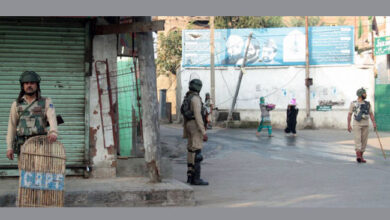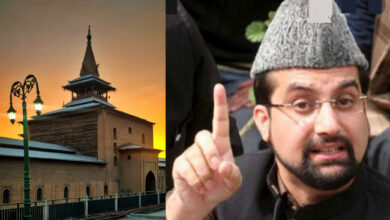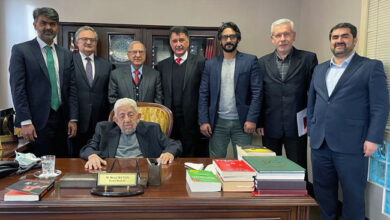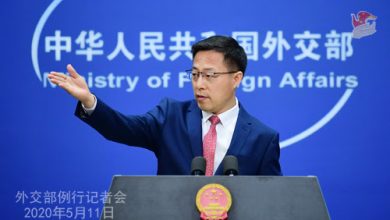Urges world to play its pro-active role to settle Kashmir dispute

Islamabad: Speakers at a Webinar organized by Kashmir Institute of International Relations (KIIR) while paying rich tributes to martyred APHC leader Sheikh Abdul Aziz said that the unity and concurrence within the resistance leadership was imperative to take the martyrs’ mission to its logical end.
The webinar titled “Remembering Sheikh Abdul Aziz Shaheed-e-Azeemat” held to mark 13th martyrdom anniversary of the APHC leader was attended by noted human rights activists, scholars, academicians, representatives of civil society organizations and political leaders including Muhammad Farooq Rehmani convener APHC, Ghulam Muhammad Safi, Syed Arif Bahar senior columnist and Anchor, Executive Director CPDR Ershad Mehmud, Rafiq Ahmed Dar, Hassan ul Bana and others. The event was moderated by the KIIR Chairman Mr. Altaf Hussain Wani.
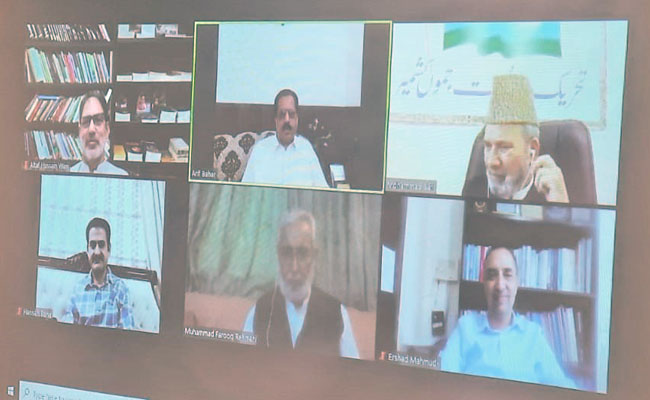
In his opening remarks the KIIR chairman while highlighting the supreme sacrifices of the APHC leader said, “The supreme sacrifices rendered by the martyred leader would be remembered for a long time in the annals of Kashmir history.
Terming him as a man of great honesty and integrity, the speakers, said that Sheikh Aziz was a staunch and committed freedom fighter who rendered his services for the cause while working on different fronts. “Rationality, resilience and compassion were the hallmarks of his simple but sober personality”, they said adding that the martyrdom of Sheikh Aziz and other towering liberation leaders would continue to inspire the next generation of Kashmiris who believe in freedom and justice.
The speakers while condemning the Indian government’s repressive policies said, “Along with policy of oppression and suppression India continued with its ruthless target-killing to eliminate Kashmiri leaders”.
Killing of frontline Kashmiri resistance leaders, they said, has been a part of India’s nefarious game plan to render the ongoing freedom movement leaderless. “However, India after realizing that every drop of blood being spilt on the streets of Kashmir cements the resolve of Kashmiri nation launched a massive smear campaign against resistance leaders to sow the seeds of discard amongst Kashmiri masses”, the speakers said adding that after 5th August 2019 a massive crackdown on Hurriyat has led to arbitrary arrests and detention of the APHC leaders and political workers.
Today, they said, most of the Hurriyat leaders along with thousands of political activists are languishing in jails in different parts of India. They, however, observed that India’s unilateral move to alter the status of Jammu and Kashmir has further exasperated the situation in the region.
On one hand killing spree of Kashmiri youth goes on unabated while on the other a ruthless suppression of dissent in the region has led to an unbearable suffocation. Urging international community to take notice of the worsening situation in the region they said that India’s hegemonic policy has turned the disputed territory into a living hell for its citizens.
Stressing the need for a just a peaceful solution of the Kashmir dispute they said that the global community should come forward in a big way to bring to an end the sufferings of the people and help resolve the longstanding unresolved Kashmir issue in a just and a peaceful way in accordance with the will of the Kashmiri people as enshrined in the relevant U.N Security Council Resolutions.
The speakers in their speeches paid great tributes to the martyred leader Sheikh Abdul Aziz saying that the martyred leader was a great freedom fighter who served the cause of Kashmir with diligence and devotion. They maintained that the best way to pay homage to the Kashmiri martyrs was to take their mission to its logical end.
Terming peaceful resolution as a key to peace and prosperity in South Asia, the speakers urged India to shun its obduracy and resolve the long-running dispute in accordance with the Kashmiris’ aspirations.
The speakers also praised Pakistan for its continued moral, political, diplomatic support to Kashmir cause.

